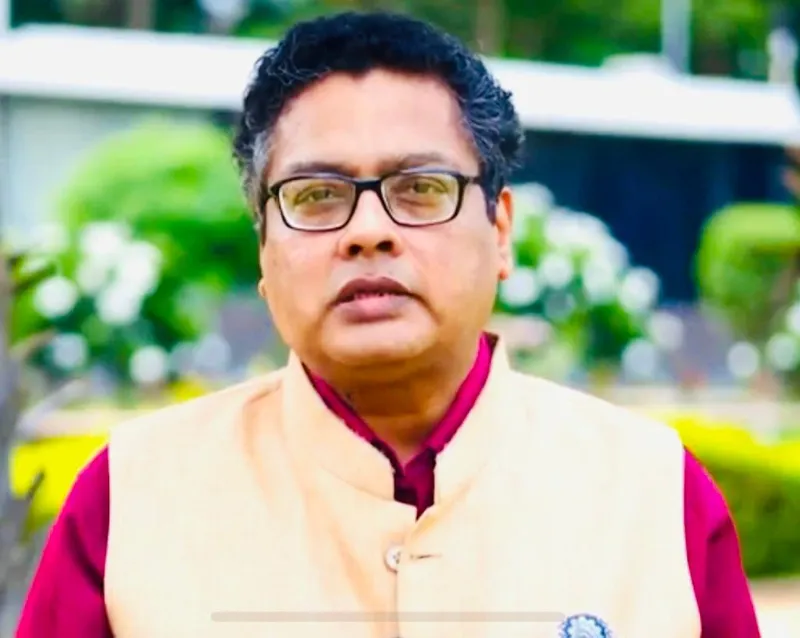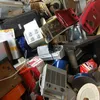[Good Governance] Bihar government is taking a big leap in e-waste management
The state government has authorised 142 e-waste collection points in various districts and has initiated awareness drives about e-waste hazards, writes Dipak Kumar Singh, I.A.S Principal Secretary, Department of Environment, Forest & Climate Change, Government of Bihar.
Today, India is amongst the top five e-waste contributors in the world generating an estimated two million tons, annually. E-waste management in our country is dominated by the informal sector with estimates of more than 90 percent of the waste being processed in this sector’ non-environmentally sound practices are rampant.
Burning cables to recover copper and unwanted materials in the open air causes environmental pollution and severe health hazards to operators, as well as common people. Disposal of unsalvageable material in open fields and at riverbanks is contributing to the leaching of heavy metals/chemicals into land and water. Even in the formal sector, printed circuit boards are exported to developed countries for the recovery of precious metals. Notably, some of the e-waste is extremely complex in constitution and therefore can be difficult to recycle, and there is a lack of availability of environmentally sound recycling technologies.

Dipak Kumar Singh, I.A.S, Principal Secretary, Department of Environment, Forest & Climate Change, Government of Bihar
Additionally, the gap between collection and recycling of e-waste collected by authorised dismantlers/recyclers, and the total quantum of e-waste being generated is also huge due to lack of environmentally sound recycling facilities and technology and lack of steady supply.
This is attributed to consumers, owing to ‘lack of awareness’ about the hazardous impact of inappropriate e-waste recycling. They sell their electronic waste to informal recyclers, both due to lack of knowledge and in the interest of quick money. This way, the registered recycling units are deprived of regular and proper supply of e-waste, therefore affecting their sustenance.
The Government of India, realising the importance of e-waste management, introduced e-Waste Management and Handling Rules, 2011 and more recently e-Waste Management Rule, 2016. However, there has been a growing change in perception regarding e-waste in India’s recycling market. Considering the valuable metals electrical and electronic waste contains, it is increasingly being seen as a harvest point for urban mining. Recognising the potential of formal methods of proper handling and disposal, time and again, policies and rules were tweaked.
In 2012, regulations acknowledged ‘lack of waste inventories’ as a limitation, and thereby places the responsibility of developing state-wise e-waste inventories on the respective State Pollution Control Boards - SPCBs. Rules, 2016 are contingent on Extended Producer Responsibility “EPR”, which is based on the ‘polluter pays’ principle, defining the role of producers who have the wherewithal to collect the end-of-life products placed in the market. It effectively serves to channelise the electrical and electronic product from cradle-to-grave. The amendment to the e-Waste Management Rules, 2016, with an objective of channelising e-waste generated in the country towards authorised dismantlers and recyclers, is yielding results.
The number of e-waste recycling units have substantially increased from 23 in 2010, to 275 (dismantlers and recyclers) in 2018, with recycling capabilities of about 0.5 million tonnes per year, across 16 states and union territories. Nearly 1,151 producers and electronic equipment manufacturers in the country have been provided with EPR authorisation by the Central Pollution Control Board – CPCB.
Now, every state does not have electronic or equipment manufacturing units and therefore to cater such needs, the e-Waste (Management) Amendment Rules, 2018, came into force. It states that if there are no production units in a ‘state’, then distributors should be responsible for recycling of e-waste.
Bihar, with its rising middle class and zooming technology penetration from A to B & C class cities, is fast becoming a large electronics consumer market and very soon will turn out a significant e-waste generator. A study indicated that in 2013, Bihar was generating around 23.5 thousand tonnes of e-waste, which as per expectations, must have risen to around 90,000 tonnes of e-waste per annum.
Now, since there are no producers of electronic goods or equipment in the state, e-Waste (Management) Rules, 2018 have been enforced by the Bihar State Pollution Control Board (BSPCB). The BSPCB, which was constituted under Section 4 of the Water (Prevention and Control of Pollution) Act, 1974, is entrusted with planning programmes for prevention and control of pollution.
Headed by a Chairman, and a full-time Member Secretary, its board constitutes of Principal Secretaries of Environment, Forest and Climate Change Department, Transport Department, Finance Department, Principal Chief Conservator of Forest, Director of Mines and Geology, Government of Bihar, and is also represented by honourable Mayor of several Municipal Corporations.
Considering it to be an authority to check and control pollution by all means, it has, till now, authorised 142 e-waste collection points in various districts of the state under e-Waste (Management) Rules, 2018. Though it often initiates awareness drives to teach the extent of e-waste hazards, but there are some nagging challenges.
This includes the mindset of minimal compliances – even the large multinational original equipment manufacturers to small dealers is focussed on keeping compliances costs of e-waste management, as an eyewash activity and always willing to cut the corners, wherever possible. Similarly, big or small consumers expect monetary compensation for the perceived value of their e-waste, and then there is poor logistics to transport such waste to the right place, inefficient recycling processes in place, and on top of it all, lack of awareness and sufficient regulatory capacity.
A vision 2030 has been set to achieve a system that provides a secured, ring-fenced method for proper collection, synergies between the formal and informal sector, treatment and disposal of e-waste through cost-effective technologies to address current challenges, so as to bring an effective end-to-end recycling solution for the state.
Edited by Diya Koshy George

![[Good Governance] Bihar government is taking a big leap in e-waste management](https://images.yourstory.com/cs/5/98c65090592f11ea9f62339ce853ca75/Image1h4d-1602591077578.jpg?mode=crop&crop=faces&ar=2%3A1&format=auto&w=1920&q=75)





